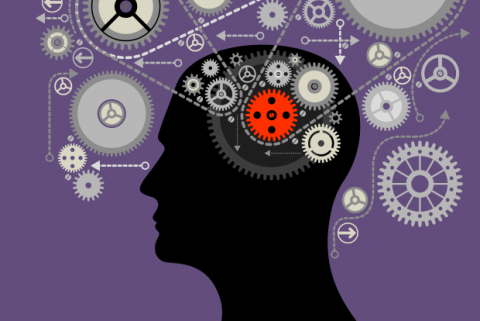How will artificial intelligence change the way we do business five years from now? In part two of our conversation with Seal Software CTO Kevin Gidney, he explains how AI is revolutionizing industries and changing ideas about what jobs will require humans.
(If you missed part one, see What AI teams need to succeed.)

The Enterprisers Project (TEP): What can we do with AI now that we couldn't do five years ago?
 Gidney: So many things become possible when hardware and software performance increases to allow the most complex of tasks to be done within a few seconds. Look at deep neural networks and how the training of those is now possible within a few hours (or days) with enough hardware. This opens up possibilities that we could not have considered.
Gidney: So many things become possible when hardware and software performance increases to allow the most complex of tasks to be done within a few seconds. Look at deep neural networks and how the training of those is now possible within a few hours (or days) with enough hardware. This opens up possibilities that we could not have considered.
I am sure the people of my generation will remember "Hitchhikers Guide to the Galaxy," where the universal translation unit, the Babel Fish, was just a notion within a fantasy book. Now it’s possible on your phone! Five years ago, this would not have been possible at all, as the computing power would not have been available to do real-time translation. So the new GPU hardware has opened up the ability to try things within a few hours, which means the cycle time from idea, to test, to results, is condensed. And this allows for people to try all kinds of crazy things, some of which turn into amazing new products.
TEP: What changes will AI during the next five years bring?
Gidney: I think AI is truly starting to become capable of learning complex tasks alone. Look at the work being done within reinforced learning, or as most people will know it, the work Google is doing with DeepMind. Then we have GANs (Generative Adversarial Networks): This allows a system to use two competing networks to teach itself a function or learn a classification. We are close to having a system that could learn with little human intervention.
This, as you can imagine, opens up many challenges. Let’s not all jump to a vision of the Terminator films right away, but let’s focus on the possibilities. Take medical learning: If a system could just start without any preconceptions of what or how to learn, in looking for illnesses, it might find linkages that we have just ignored. The human mind, when old enough, learns to block things out. It's why we don’t see the TV screen flickering when we're watching. The eyes and mind have learned to filter it out. What else are we filtering out without knowing?
Now if we fast forward five years, to a time when quantum computing may well be a viable option at small scale, we can have models that can work on all data possibilities in near real time, which can see all possible outcomes at once, and have a processing power to learn what we cannot imagine.
TEP: How can AI facilitate and create human jobs, rather than potentially replace them?
Gidney: The systems will generate many new possibilities while removing the repetitive jobs of today. No one today would like to go back and start weaving all clothes by hand, or re-threading the bobbin on a weaving machine.
We actually gained more jobs from the industrial revolution than we lost, and I believe the same will be the case with AI in the workplace.
We should also consider the quality this change will bring, not just look at jobs being lost. For example, the quality of life of people will change radically. No more deaths because of, say, a driver falling asleep at the wheel. How about a clean ocean? Robots and automated systems can work 24x7 to clean, collect, process and then produce new things from the waste.
All of this will need people to manage, schedule, plan, maintain and coordinate work. Also, knowledge systems will require people with a new set of skills, a hybrid of legal, computer programming, and data science skills. These skill sets will be needed to create knowledge and advisory applications, for legal, medical, sports training or other kinds of systems that need to learn quickly and provide advice or guidance.





